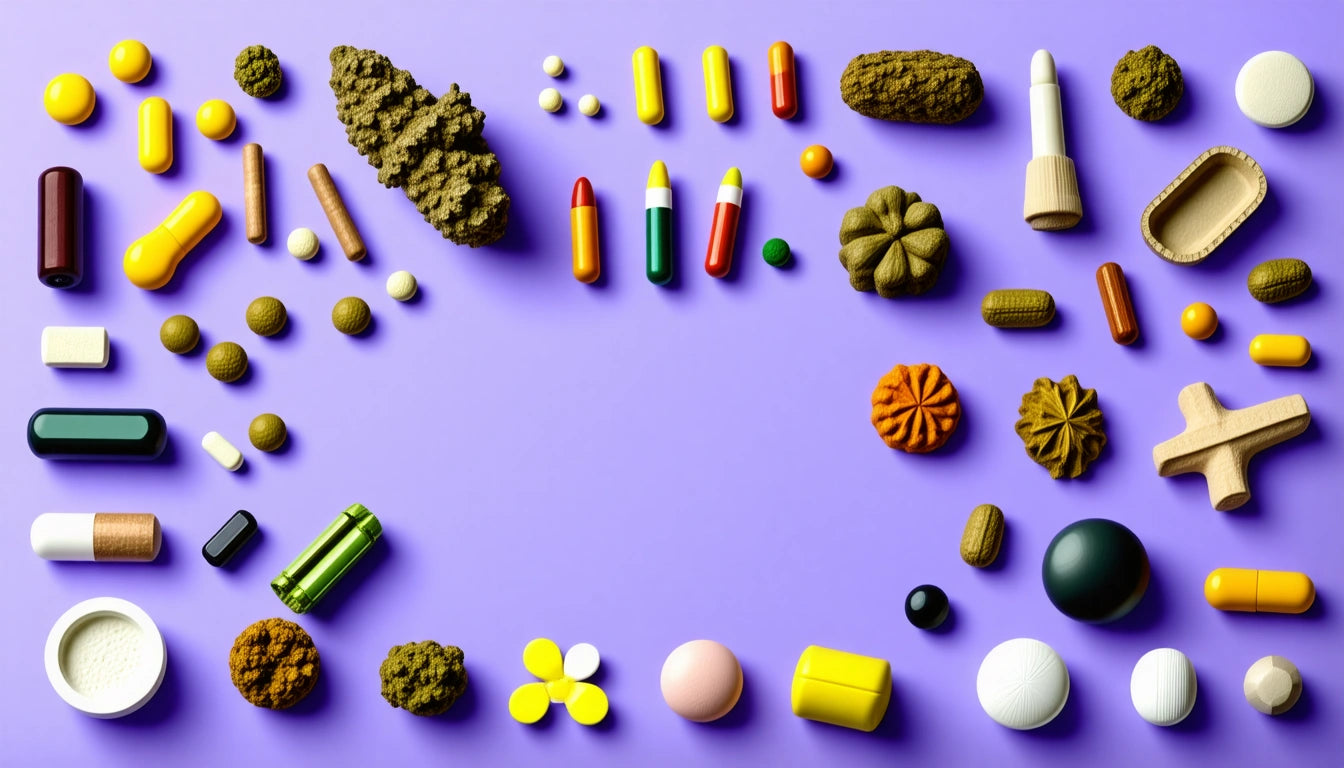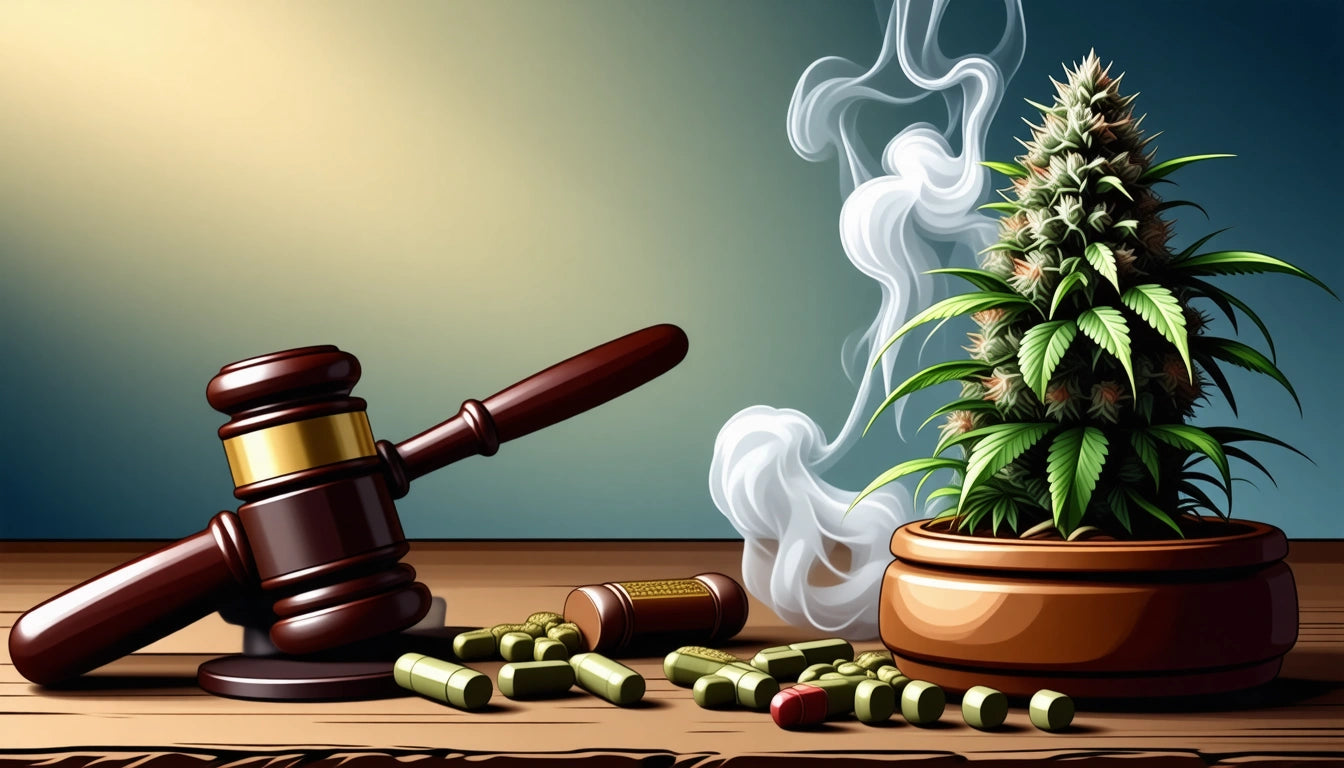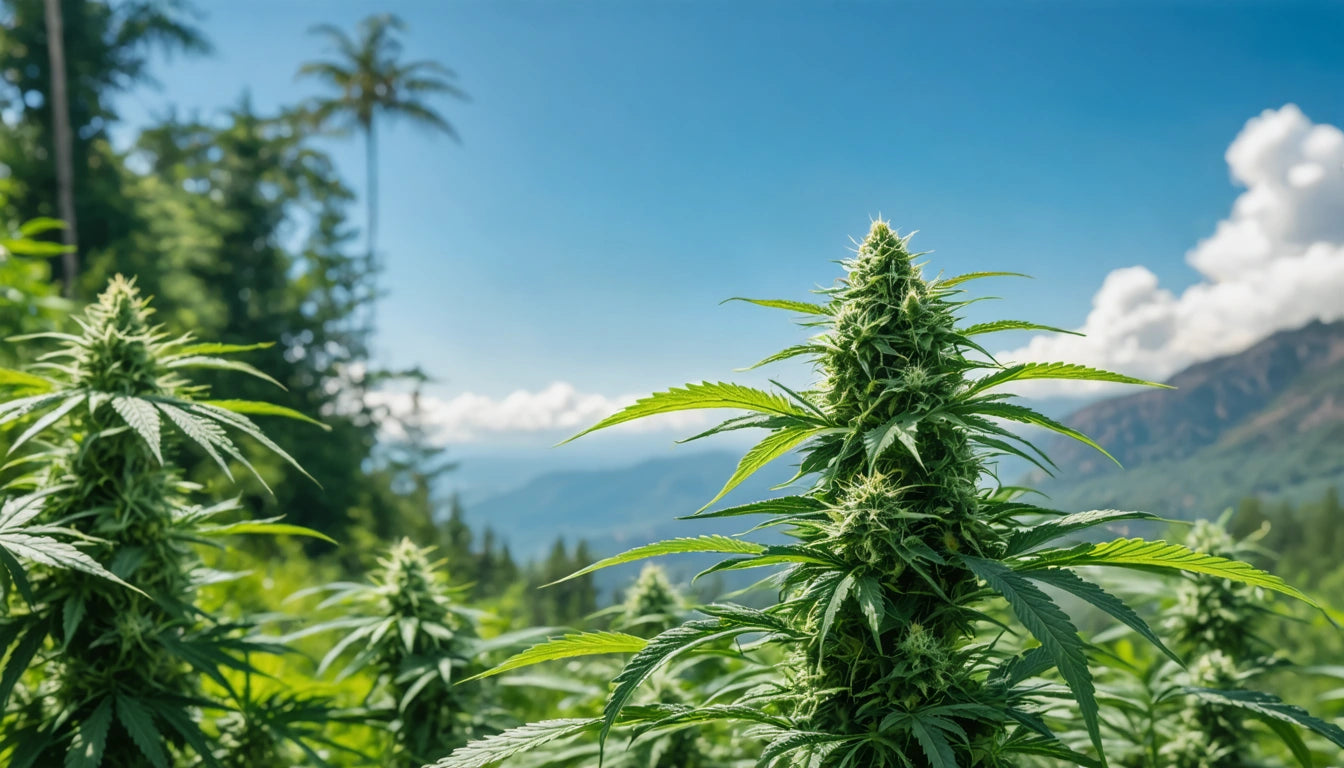Table of Contents
Understanding the Risks and Effects of THC Overconsumption
As cannabis legalization expands across the country, more consumers are asking important questions about THC safety. Among the most common concerns are whether THC can be lethal, what constitutes overconsumption, and how to recognize when someone has consumed too much. This guide addresses these questions with evidence-based information to promote safer consumption practices.
THC Overconsumption Basics: Facts vs. Myths
THC (tetrahydrocannabinol) is the primary psychoactive compound in cannabis responsible for the "high" sensation. While THC affects everyone differently based on factors like body chemistry, tolerance, and consumption method, there are common misconceptions about its potential dangers.
One persistent question is "can you overdose on THC?" The term "overdose" typically refers to life-threatening medical emergencies, which are extremely rare with cannabis. However, consuming too much THC can certainly lead to uncomfortable and sometimes frightening experiences that may require medical attention.
Lethal Dose Research: Can THC Actually Kill You?
Research consistently shows that the lethal dose of THC is extraordinarily high, making fatal overdose from cannabis alone virtually impossible in real-world scenarios. According to scientific estimates, a person would need to consume approximately 1,500 pounds of cannabis within 15 minutes to reach potentially fatal levels.
To put this in perspective, when preparing cannabis for consumption using quality grinding equipment, even the most efficient processing methods could not produce enough material for a lethal dose. The human body simply cannot consume the theoretical amount required for fatality.
This is why there are no documented cases of death solely attributed to THC toxicity. When examining the question "can too much THC kill you," the scientific consensus points to an extremely low risk compared to many other substances, including alcohol and prescription medications.
Common Symptoms of THC Overconsumption
Though not life-threatening, consuming excessive THC can produce several uncomfortable symptoms:
- Extreme anxiety or paranoia
- Rapid heart rate
- Disorientation and confusion
- Severe nausea and vomiting
- Hallucinations or delusions
- Panic attacks
- Extreme sedation
The question "can too much THC cause nausea" is particularly common. The answer is yes, and in some cases, heavy or chronic users may develop Cannabinoid Hyperemesis Syndrome (CHS), characterized by cyclic vomiting and abdominal pain that can only be relieved by hot showers or abstinence from cannabis.
Understanding safe consumption limits is crucial for avoiding these negative experiences. Individual tolerance varies significantly, which is why starting with low doses and gradually increasing is recommended, especially for inexperienced users.
What Is Considered Heavy Use of THC?
The definition of heavy cannabis use isn't universally standardized, but most researchers and clinicians consider daily or near-daily use to qualify as heavy consumption. More specifically:
- Using cannabis multiple times per day
- Consuming high-potency products (concentrates with THC percentages above 60%)
- Regular consumption that interferes with daily responsibilities
- Using cannabis as the primary coping mechanism for stress or emotional issues
Heavy use increases the risk of developing cannabis use disorder, characterized by dependence and difficulty controlling consumption despite negative consequences. According to established consumption guidelines, limiting use to occasional rather than regular consumption reduces potential health risks.
THC Shelf Life: Does THC Go Bad?
Another common question is "does THC go bad?" While THC doesn't become toxic or dangerous as it ages, it does degrade over time, primarily converting to CBN (cannabinol), which is less psychoactive but more sedating. Proper storage in cool, dark places away from oxygen, heat, and light can significantly extend shelf life.
Consuming older cannabis products typically results in diminished potency rather than increased risks. However, improperly stored products may develop mold or bacteria that could pose health risks unrelated to the THC content itself.
Understanding THC and THCA differences is also relevant here, as raw cannabis contains mostly THCA (non-intoxicating) that converts to THC through decarboxylation when heated.
Safe Consumption Practices and Harm Reduction
While research confirms that fatal THC overdose is virtually impossible, responsible consumption remains important for avoiding negative experiences. Consider these harm reduction strategies:
- Start low and go slow, especially with edibles which have delayed onset and prolonged effects
- Understand product potency and serving sizes
- Avoid mixing cannabis with alcohol or other substances
- Be mindful of consumption method (inhalation provides faster onset and easier dose control than edibles)
- Create a comfortable environment with trusted companions when trying new products
- Stay hydrated and have snacks available
If you or someone else experiences severe symptoms after consuming THC, remember that these effects are temporary. Focus on staying calm, moving to a quiet environment, hydrating, and reassuring the affected person that the feelings will pass. In cases of extreme distress or concerning physical symptoms, don't hesitate to seek medical help.
Understanding how THC affects metabolism and hydration can also help consumers prepare appropriately for cannabis use and minimize negative side effects.
By approaching cannabis consumption with knowledge and caution, users can enjoy its benefits while minimizing potential risks. The key is education, moderation, and awareness of individual tolerance levels.











Leave a comment
All comments are moderated before being published.
This site is protected by hCaptcha and the hCaptcha Privacy Policy and Terms of Service apply.